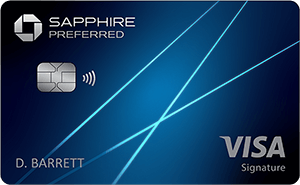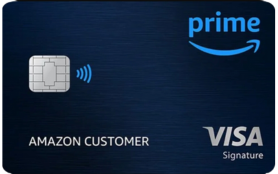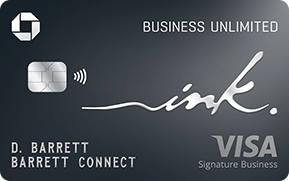- Understand your financial goals and needs
- Find the right account type
- Be mindful of fees and charges
- Pay attention to interest rates
- Prioritize accessibility and convenience
- Research customer service and reputation
- Get to know account features
- Know the minimum balance requirements
- Ensure safety and security
What is the importance of savings and investments?
Savings and investments are crucial for achieving financial stability, growth, and meeting long-term goals. Savings provide a safety net for emergencies and short-term needs, while investments allow your money to potentially grow over time, outpacing inflation and generating additional income. By combining both, you can build wealth and secure your financial future.
What is the difference between savings and investments?
Savings refer to money set aside from your income for short-term goals or emergencies. This is typically kept in easily accessible accounts like savings accounts or money market accounts, offering low risk and lower returns. Investments involve putting money into various assets, such as stocks, bonds, real estate, or mutual funds, with the aim of generating higher returns over a longer period, but with increased risk.
How does compounding impact savings and investments?
Compounding is a powerful financial concept that works in favor of both savings and investments. In savings, the interest earned on your initial deposit accumulates over time, and you also earn interest on the accumulated interest. In investments, your earnings (like dividends or capital gains) get reinvested, leading to exponential growth. Starting early allows more time for compounding to work its magic, resulting in substantial wealth accumulation.
What are the different risk levels associated with savings and investments?
Savings are relatively low-risk, especially when kept in insured bank accounts, but they offer lower potential returns. Investments carry higher risk due to market fluctuations, but they also offer the potential for higher returns. It’s important to assess your risk tolerance – your ability and willingness to withstand market volatility – and align your savings and investment choices accordingly.
What factors should one consider when choosing savings options?
When selecting savings options, factors such as accessibility, liquidity, and safety come into play. Look for accounts with competitive interest rates, low fees, and FDIC (or equivalent) insurance to protect your deposits. Consider your goals – whether it’s an emergency fund, a down payment on a house, or a vacation – and choose accounts that provide the right balance of interest and accessibility.
What factors should one consider when making investment decisions?
Investment decisions depend on your goals, risk tolerance, and investment horizon. Diversification is key – spreading your investments across different asset classes can help manage risk. Understand the investment options available, research historical performance, and consider seeking advice from financial professionals. Stocks offer potential for high returns but come with higher volatility. Bonds are generally less risky but offer lower returns. Real estate and mutual funds also provide options for diversification. Regularly review and adjust your investment portfolio as your goals and market conditions change.
Selecting the right bank account is a crucial financial decision that can greatly impact your financial well-being. With a plethora of options available, discovering how to choose a bank that suits your specific needs and goals can be a daunting task. Whether you’re a first-time account holder or considering switching banks, this guide will help you navigate the process and make an informed decision about your finances.
Understand your financial goals and needs
Before you start comparing bank accounts, it’s important to understand your financial goals and needs. Consider what you’ll be using the account for—is it for everyday expenses, savings, or a specific financial goal like buying a home or starting a business? Knowing your objectives will help you choose the right type of account.
Find the right account type
Banks offer various types of accounts, each designed for different purposes. Here are some common account types to consider on your search for how to choose a bank:
Checking account: A checking account is ideal for managing everyday expenses, paying bills, and withdrawing cash. It usually offers easy access to funds through checks, debit cards, and online banking.
Savings account: A savings account is designed to help you grow your money over time. It typically offers higher interest rates compared to checking accounts, making it a great option for building an emergency fund or saving for future goals.
Certificates of deposit (CDs): CDs are time-bound savings accounts with fixed interest rates. They’re suitable for individuals who want to earn more interest by locking in their money for a specified period, typically ranging from a few months to several years.
Money market account: Money market accounts are a hybrid between savings and checking accounts. They offer higher interest rates than regular savings accounts and often provide check-writing privileges.
Navigator Tip
Some banks offer special incentives and account benefits if you also hold one of their credit cards. These perks can include fee waivers, higher interest rates on savings accounts, or rewards programs that allow you to earn cash back or points on credit card purchases.
Be mindful of fees and charges
It’s essential to be aware of the fees and charges associated with your chosen bank account. Common fees may include monthly maintenance fees, overdraft fees, ATM fees, and foreign transaction fees. Look for accounts that offer fee waivers, such as waiving monthly fees if you maintain a certain minimum balance or have a direct deposit.
Pay attention to interest rates
Interest rates can significantly impact your account’s growth. When choosing a bank account, pay attention to the interest rates offered. Savings accounts and CDs typically offer higher interest rates than checking accounts, but rates can vary from one bank to another. Online banks often have competitive rates due to their lower overhead costs.
Prioritize accessibility and convenience
Research customer service and reputation
A bank’s reputation and customer service are crucial factors to consider. Read reviews, seek recommendations from friends and family, and research the bank’s track record. Reliable customer service is vital, especially when you encounter issues or have questions about your account.
Get to know account features
Some bank accounts come with additional features, such as mobile check deposit, bill pay services, budgeting tools, and rewards programs. These features can enhance your banking experience and make it easier to manage your finances. Compare accounts to find those that offer the features you value most when searching for how to choose a bank.
Navigator Tip
When choosing a bank account, consider how it complements your credit card strategy. For instance, if you earn significant rewards through your credit card, you may want a bank account that offers a high yield on your savings or provides cashback on certain transactions, allowing you to maximize your rewards.
Know the minimum balance requirements
Ensure safety and security
The safety and security of your funds are paramount. Ensure that the bank you choose is FDIC insured, which guarantees your deposits up to $250,000 per account. Also, prioritize strong online security measures, including two-factor authentication, to protect your account from fraud.
Frequently asked questions
To avoid monthly maintenance fees, maintain a minimum balance, set up a direct deposit, or consider online banks that often have lower fees. Some accounts may also waive fees if you meet certain criteria.
Credit cards can influence your choice by providing perks such as fee waivers, rewards, or overdraft protection. They can also affect your credit score when applying for certain bank accounts, and integrating credit card payments can simplify your financial management.
Some banks offer debt consolidation options or lines of credit to help manage high-interest credit card debt. Discuss your specific needs with the bank to see if they have suitable solutions.
The Federal Deposit Insurance Corporation (FDIC) insures your deposits in case your bank fails. It guarantees up to $250,000 per account, providing protection and peace of mind for your funds.
Yes, you can have multiple bank accounts to meet various financial needs. For instance, you might have a checking account for daily expenses and a separate savings account for emergencies or specific financial goals.












 by your friends at The Daily Navigator
by your friends at The Daily Navigator



